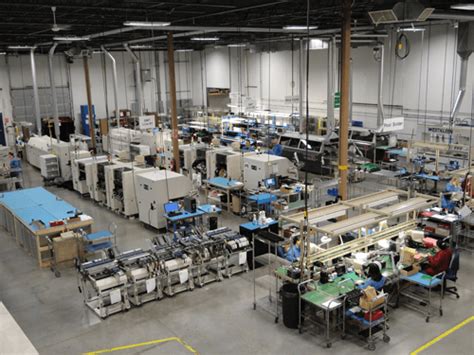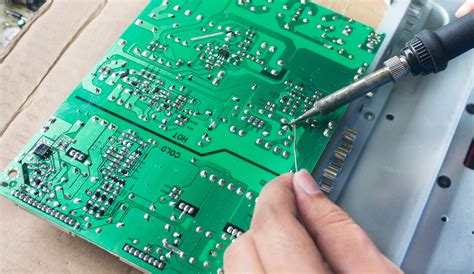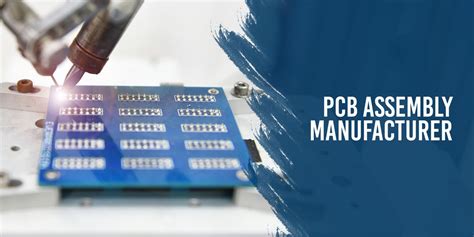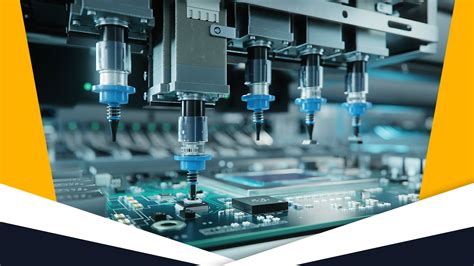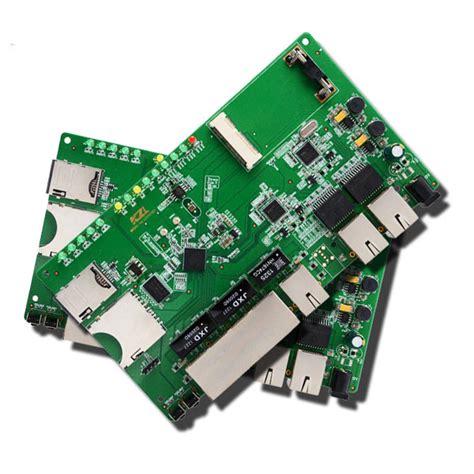Top Circuit Board Assembly Companies Revolutionizing Technology
Key Takeaways
The world of pcb assembly is at the forefront of modern electronics, representing a crucial intersection between design and functionality. The role of pcb assembly companies, or PCBA entities, is increasingly important, as they not only manufacture and assemble printed circuit boards but also contribute significantly to technological advancements. These companies employ cutting-edge innovations such as automated assembly lines and advanced quality control systems to enhance the precision and efficiency of the pcba process. Moreover, their exceptional services range from prototype development to mass production, allowing technology firms to streamline their supply chains and reduce time-to-market for new products. As we navigate through this evolving landscape, it becomes clear that these firms are not just service providers; they are pivotal partners in driving the future of electronics. With a commitment to sustainability and responsiveness to market needs, leading circuit board assembly companies are shaping a landscape where technology continues to thrive and evolve for years to come.
Overview of Circuit Board Assembly: A Key Component in Modern Electronics
In the realm of modern electronics, pcb assembly plays a crucial role in bridging the gap between innovative designs and practical applications. Circuit board assembly, often abbreviated as PCBA, is the process of attaching various electronic components to a printed circuit board, enabling the functionality of complex devices that power our daily lives. The assembly process is characterized by precision and accuracy, ensuring that each component is correctly placed and soldered to facilitate optimal performance.
Leading circuit board assembly companies utilize advanced technologies and methodologies to enhance the efficiency and quality of their assemblies. These organizations invest in cutting-edge machinery, skilled labor, and rigorous quality control measures to meet industry standards. The importance of this sector cannot be overstated; as technology advances, the demand for reliable pcb assembly services grows exponentially.
In Table 1 below, we highlight key metrics that underline the significance of circuit board assembly in modern electronics:
| Metric | Impact |
|---|---|
| Growth Rate | 10% annually |
| Global Market Size (2023) | $80 billion |
| Number of Components per PCB | Up to 100+ |
| Average Production Time | 1-3 weeks |
“Investing in quality PCBA services can significantly reduce long-term production costs.”
The seamless integration of components through pcba is fundamental not only for consumer electronics but also for industries such as automotive, aerospace, and medical devices. As we continue to witness transformative advancements in technology, understanding the intricacies of circuit board assembly becomes essential for stakeholders at every level. By embracing innovation within this field, companies position themselves at the forefront of electronic development, paving the way for future advancements that will impact all areas of our increasingly interconnected world.
The Importance of Circuit Board Assembly Companies in Technological Advancements
Circuit board assembly companies play a crucial role in the realm of modern electronics, serving as the backbone for a wide range of devices that we rely on daily. In this rapidly evolving tech environment, the significance of pcb assembly cannot be overstated; it is a process that not only ensures functionality but also enhances the performance and reliability of electronic products. These companies utilize advanced techniques to streamline production and reduce costs, enabling availability for innovative products at competitive prices. As technology becomes increasingly complex, lead firms in pcba are continuously improving their processes to facilitate faster turnarounds and higher quality outputs. This commitment to excellence has led to the incorporation of sophisticated machinery and innovative methodologies that push the boundaries of what is possible in electronics manufacturing. The ability to meet stringent industry standards while adapting to changing market demands underscores the integral role these firms play in fostering technological advancements. Moreover, their collaboration with various tech companies has resulted in groundbreaking innovations that are shaping our future—allowing for everything from smart devices to intricate automotive systems. As such, these circuit board assembly entities are not merely service providers; they are pivotal partners driving evolution within the global tech landscape.
Cutting-Edge Innovations: How Top Companies Are Shaping the Future
In the rapidly evolving landscape of electronics, circuit board assembly plays a crucial role in ensuring the functionality and reliability of devices. Leading pcb assembly companies are at the forefront, integrating advanced technologies such as automation, artificial intelligence, and sophisticated software solutions to enhance their production processes. These innovations not only streamline operations but also improve quality control, resulting in superior pcba products. Companies are increasingly adopting metrics-based strategies to monitor performance and reduce waste during assembly processes. Enhanced techniques like 3D printing and advanced soldering methods further redefine traditional practices, enabling manufacturers to create more complex circuit designs that meet the demands of modern applications. Moreover, with a growing emphasis on miniaturization, these firms are developing smaller yet more powerful components that significantly enhance device capabilities. As these innovative practices continue to emerge, they serve as a driving force behind technological advancements that shape future electronics, demonstrating how leading circuit board assembly companies are revolutionizing the tech industry one innovation at a time.
Exceptional Services Offered by Leading Circuit Board Assembly Firms
Leading circuit board assembly companies have positioned themselves at the forefront of technological innovation by offering an extensive range of exceptional services that cater to the diverse needs of their clients. One of the most critical services is custom PCB assembly (pcba), which allows companies to tailor their designs to meet specific project requirements, ensuring both functionality and efficiency. Additionally, many pcb assembly firms provide rapid prototyping services, enabling clients to test and iterate on their designs quickly. This flexibility not only accelerates product development but also helps mitigate risks associated with new technologies.
Moreover, advanced testing services, such as Automated Optical Inspection (AOI) and X-ray inspection, are integral to these companies’ offerings, ensuring that every circuit board meets stringent quality standards before reaching the market. These testing methodologies enhance reliability and performance, fostering trust among manufacturers and end-users alike. Furthermore, leading firms are increasingly incorporating supply chain management solutions that streamline procurement processes for electronic components and materials—this not only reduces lead times but also contributes to cost savings for clients.
Additionally, exceptional customer support and collaboration throughout the production process exemplify how these companies prioritize client engagement. By maintaining open lines of communication and providing expert guidance on best practices in design for manufacturing (DFM), they empower tech firms to navigate the complex landscape of electronics development more effectively.
In summary, it is evident that circuit board assembly companies are essential partners in fostering innovation within technology sectors through a suite of services designed not just for assembly but also for comprehensive support throughout a product’s lifecycle.
Case Studies: Successful Collaborations Between Technology Firms and Assembly Companies
The realm of pcb assembly is marked by numerous success stories, showcasing how vital partnerships between technology firms and circuit board assembly companies can lead to remarkable innovations. For instance, a notable collaboration involves a leading smartphone manufacturer that partnered with a pcba specialist renowned for its state-of-the-art manufacturing processes. This alliance enabled the smartphone company to enhance the efficiency of their devices, significantly reducing production time while maintaining high-quality standards. Similarly, an electric vehicle maker worked closely with a pcb assembly firm to develop intricate circuit designs that improve battery management systems, driving advancements in sustainability and performance in the auto industry. These case studies illustrate the transformative impact such collaborations have on both sectors, ultimately revolutionizing the tech landscape through shared expertise and cutting-edge solutions. As technology continues to evolve, the synergy between technology firms and assembly companies will undoubtedly breed even more innovative solutions that push the boundaries of electronic manufacturing and device performance.
Trends in Circuit Board Assembly: What the Future Holds
As technology continues to evolve rapidly, pcb assembly processes are also undergoing significant transformations. The increasing demand for miniaturization and enhanced performance in electronic devices is driving circuit board assembly companies to innovate and adapt. One noteworthy trend is the integration of automation and robotics in the pcba process, which enhances precision and efficiency while reducing errors. Moreover, companies are increasingly leveraging advanced materials, such as flexible substrates and high-frequency laminates, to meet the requirements of modern electronics. Furthermore, the rise of Internet of Things (IoT) devices has led to a greater emphasis on connectivity features in PCB designs, prompting assembly firms to focus on developing high-density interconnect (HDI) technology. Environmental sustainability is also gaining traction; manufacturers are adopting eco-friendly practices such as lead-free soldering and waste reduction initiatives. Collectively, these trends point toward a future where pcb assembly not only supports but accelerates innovation in technology, propelling industries into the next era of electronic evolution.
Environmental Considerations: Sustainability Practices in Circuit Board Manufacturing
In recent years, the pcb assembly industry has increasingly focused on implementing sustainable practices to reduce its environmental impact. As technology advances, leading circuit board assembly companies are adopting eco-friendly materials and processes, which not only minimize waste but also promote energy efficiency. For instance, many firms are exploring the use of recyclable substrates and lead-free soldering techniques, significantly reducing the ecological footprint of their manufacturing processes. Moreover, these companies are prioritizing transparency in their supply chains to ensure that their materials are sourced responsibly. Embracing green manufacturing principles not only meets regulatory standards but also resonates with a growing customer base that values sustainability. By integrating these practices into their operations, pcba providers are playing a pivotal role in shaping an environmentally conscious tech landscape and setting new benchmarks for sustainability in electronics manufacturing. The shift towards sustainable practices enhances circuit board assembly firms’ reputations while fostering innovation that aligns with global efforts to protect the planet.
The Global Impact of Circuit Board Assembly Companies on the Tech Industry
The influence of circuit board assembly (pcb assembly) companies extends far beyond their immediate manufacturing processes; they are pivotal players in the broader technology landscape. These companies provide essential services that support a wide range of industries, from consumer electronics to automotive systems, enhancing the functionality and reliability of devices we use daily. As global demand for advanced electronics rises, leading pcba firms have adopted innovative practices that not only streamline production but also ensure high-quality assembly processes. Their role is crucial in the fast-paced environment where quick turnaround times and precision are paramount. Collaborations between these assembly companies and tech innovators have led to breakthroughs in product design and performance, creating a synergistic effect that drives technological advancements. Moreover, their commitment to quality management and adherence to international standards ensures that these circuit board assemblies remain competitive globally, contributing significantly to the sustainability of electronics manufacturing while pushing the boundaries of what technology can achieve. Thus, circuit board assembly companies are not merely suppliers; they are integral contributors to shaping the future landscape of our digital world.
Conclusion
In summary, circuit board assembly companies are pivotal in ensuring that modern electronics function seamlessly. As we have explored, these firms play a crucial role in the pcba process, which involves not only assembling components but also integrating innovative technologies that enhance the pcb assembly landscape. The exceptional services provided by these leading companies have significantly contributed to advancements in various fields such as telecommunications, medical technology, and consumer electronics. Their commitment to quality and precision in manufacturing processes helps create reliable products that continue to drive technological progress. Moreover, by remaining at the forefront of cutting-edge innovations, these firms foster collaborative relationships with tech companies to push the boundaries of what’s possible in electronics. This symbiotic relationship not only aids in the development of more efficient devices but also encourages sustainability practices that are increasingly vital in today’s environmentally aware market. Ultimately, as these pcba innovators continue to revolutionize technology, they lay down a robust foundation for an exciting future, where connectivity and efficiency will be paramount.
FAQs
What is PCB assembly?
PCB assembly refers to the process of connecting electronic components onto a printed circuit board (PCB) to create a functional electronic product. This intricate process involves various stages such as component placement, soldering, and inspection, ensuring that the final product meets industry standards.
Why are PCBA companies important in technology?
PCBA companies play a crucial role in advancing technology by providing essential services that transform raw components into fully functional electronic devices. Their expertise not only enhances the quality and reliability of products but also accelerates innovation by enabling rapid prototyping and manufacturing processes.
How do leading circuit board assembly firms drive innovation?
Leading circuit board assembly firms drive innovation through cutting-edge technologies and processes, including automation, advanced testing methods, and material optimization. These innovations allow for increased efficiency, reduced costs, and improved performance of electronic devices across various industries.
What services can I expect from top PCB assembly companies?
Top PCB assembly companies offer a comprehensive range of services including design support, prototype development, mass production, quality control, and testing. These services are tailored to meet the specific needs of clients across diverse sectors such as telecommunications, healthcare, automotive, and consumer electronics.
Are there environmental considerations in PCB manufacturing?
Yes, many leading PCB assembly companies are increasingly adopting sustainability practices in their manufacturing processes. This includes using eco-friendly materials, reducing waste through efficient manufacturing techniques, and implementing recycling programs to minimize environmental impact.

